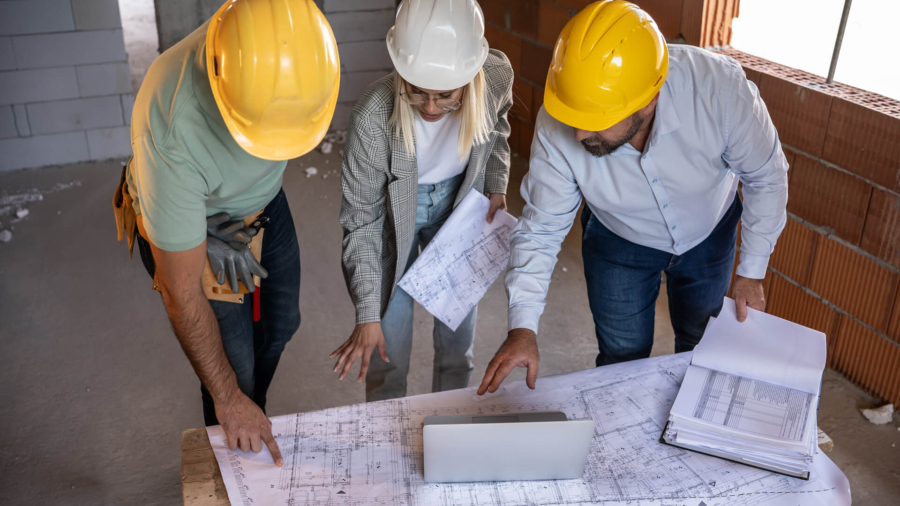Obtaining a construction permit can be challenging, especially because it often takes time. Expediting your construction permit can help you complete your project much faster.
A construction attorney can provide much-needed guidance throughout the permit process.
Permit/Process Efficiency
In the construction world, permits are a necessity. Generally, permits are required for any commercial or residential project involving construction, repairs, alterations, or any considerable changes to a structure.
The permit process can be frustrating and stressful. However, putting your focus on the permit process and expediting the process as much as possible can help you considerably. Most importantly, obtaining a permit quickly means your construction project can get going faster.
To acquire a permit more efficiently, it’s helpful to fully familiarize yourself with your project and have a solid plan. Proper planning is one of the key steps to minimizing any setbacks you may encounter during the permitting process. Also, get to know your jurisdiction and local procedures, laws, and codes.
Additionally, don’t hesitate to get assistance from a knowledgeable source if needed. A construction attorney can help you get your permits efficiently, saving you plenty of time.
Preparation & Challenges
Preparing your application and having the required documents and information ready allows you to complete the necessary steps much faster.
Depending on the type of project you’re getting a permit for, you may need to provide certain documents, including:
- Blueprints
- Site plans
- Floor plans
- Foundation plans
- Roof plan
- Land surveys
Additionally, you must provide information about your project, including a thorough description of the project scope of work.
Failure to obtain and provide the documentation needed for your permit can add to your construction timeline and costs. For this reason, it’s important to understand what you need for a comprehensive permit application and provide everything the first time around to avoid denials and further issues.
Choosing the Right Permit Type & Qualified Contractor
There are numerous types of permits you can apply for, depending on the type of project. Some common kinds of permits include, but are not limited to:
- General building permits: Required for alterations, repairs, and new construction projects
- Electrical permits: Necessary for electrical jobs, including installing new wiring or additions to existing electrical installations
- Plumbing permits: Required for cutting into or replacing pipes, specifically those in walls or underground
- Reroofing permits: Necessary for roof replacement work, including installing, removing, or repairing roof sheathing
Contractors are often responsible for overseeing these projects but also obtaining necessary permits. A contractor can apply for permits, schedule required inspections, and ensure projects are completed according to plan. Contractors also hold legal responsibility for projects; therefore, hiring a qualified contractor is important.
Utilizing Online Services & Fast-Track Permitting
Online services and other resources can help you expedite the permitting process, allowing you to get to work much quicker.
Depending on the type of permit needed, certain cities and counties allow licensed contractors to apply for and obtain permits online. Over-the-counter permits are easier to get quickly online for smaller projects. Larger projects and commercial construction jobs usually go through formal channels and could take longer to get.
Additionally, some cities allow for expedited plan review requests for larger projects. While requesting an expedite typically involves additional fees, it could help you keep up with your project timeline and get the job done faster.
Legal and Liability Considerations
To get a building permit, you must take special note of laws, codes, and regulations. Responsibility for permits falls on the party requesting the permit, which is usually the contractor. This is one of the reasons contractors carry liability insurance, as they are liable for projects.
The legal aspect of construction permits can be one of the more challenging parts. For guidance and support, consult with a local construction attorney.
Get Help with Your Construction Permits
The construction attorneys at Alves Radcliffe have extensive experience helping clients with permitting for their construction jobs. We invite clients throughout the Bay Area and greater Sacramento to contact us to schedule a meeting.











